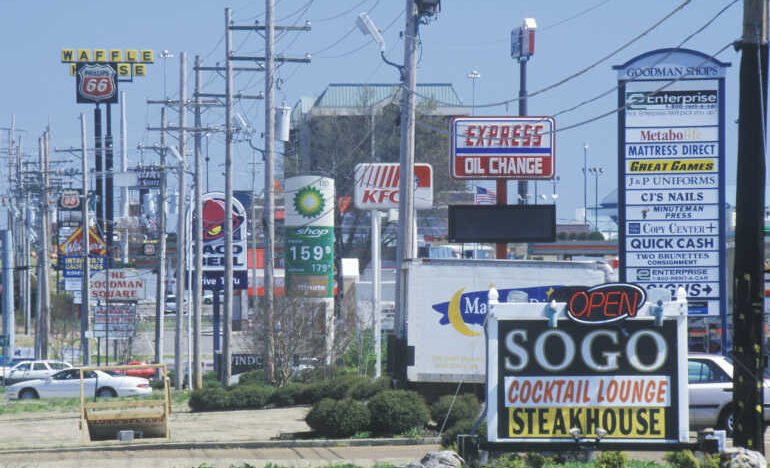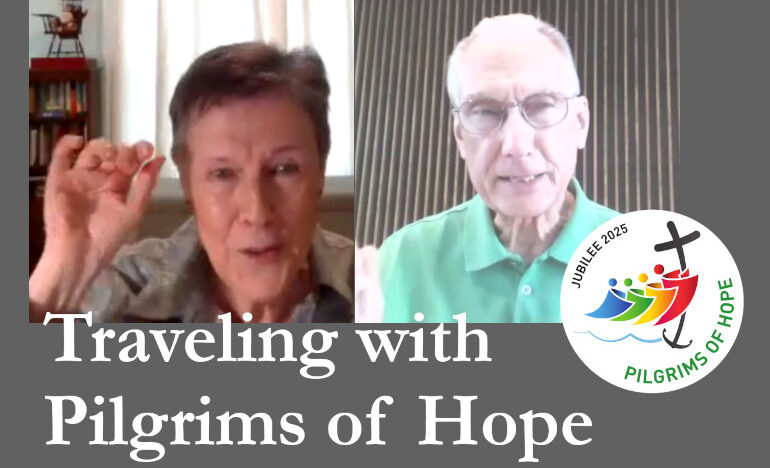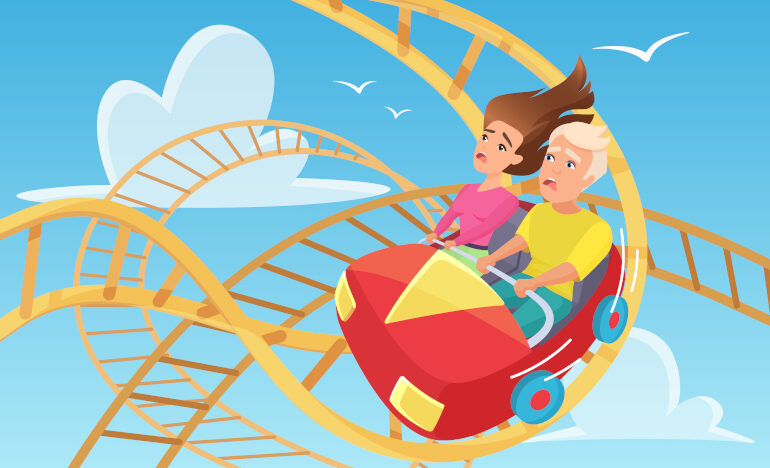Finding your desert in a land of too much

An Assembling God’s Puzzle video
By Fr. Garry Richmeier, CPPS
We live in a culture of “too much.” It wasn’t too long ago in human history that our sole focus was on survival —– food, water, and shelter. Now we have reached prosperity, and there is too much of everything, and it can drive us nuts. There’s too much food, travel, alcohol, drugs, work, meetings, information, news, technology, kid’s activities, etc. We now have numerous meal delivery services, because we don’t have time to cook. When there is too much and we can’t keep up, we often live in near-constant stress, anxiety, and even depression.
We have to live in this culture of “too much,” so what can we do with it to help ourselves survive and thrive?
Lent is an opportunity, or maybe even and excuse, to practice some ways of reducing the “too much.” Lent begins with the image of Jesus spending 40 days in the desert. There is not too much in the desert, except maybe too much heat and too much danger. It’s a place where things are pared down to the basics, and unnecessary stuff gets left behind. Using that image, we can design our own time(s) in the desert.
We might begin by prioritizing the many things and activities that demand our attention. Some things absolutely have to get done, while other things can be postponed or skipped altogether without big consequences. Once we’ve distinguished between those two groups of things, we then can schedule in the important things and schedule out the less important things.
Calendars can be helpful in this regard. Every cell phone has a built-in calendar we can use if we want. One thing to schedule in might be a walk or a drive in nature, where there is less noise, less activity, and fewer people. Noticing nature has a way of slowing us down and calming us.
Fasting from food is a time-honored Lenten activity, but we can fast from many things to avoid “too much.” Fasting (at least a little) from news can save us some stress and anxiety. Or fasting from Facebook if we spend too much time on it. My cell phone automatically keeps track of how much time I spend on Facebook or any other online activity. I can use that to help me reduce my online activity.
Spending more in-person time with friends with no particular agenda can be relaxing. Or we might plan one less meal that we go out for, saving the expense and time, and spend the time cooking with family instead.
I like to take what I call mini vacations. We can’t all take three big vacations a year or take off for three weeks at a time, but mini vacations are always possible. You can take a mini vacation while your coffee is brewing in the morning, or while you are waiting for a meeting to start. It can be done in 5 minutes if that is all the time available. One way to do this is to simply bring one’s focus and attention to the present moment, avoiding focusing on the past or the future.
Simply noticing one’s breath is an easy way to do this. Maybe saying one’s favorite prayer in that time can help one’s focus. But as best you can, quiet your mind and simply focus on one thing – right now.
This will sound familiar If you are acquainted with contemplative prayer. It is a prayer, not of reciting words, but of going inward to listen to what God has to say. But to listen, we need to first quiet all the noise and activity that is usually filling up our attention. It’s a good Lenten way of praying.
We can also use our imagination to take a walk on the beach, or in the mountains, or wherever we feel most peaceful. Our body and Spirit tends to react to what we “see” in our imagination in the same way it reacts to reality.
As we practice simplifying and reducing, we only need to do what is manageable. If 5 minutes of quiet is all we have, great. If we have 30 minutes, that is great too. It will not help to make this one more task to get done in our day.
The old commercial for McDonald’s said “You deserve a break today.” That is very true for all of us when it comes to taking a break from “too much.” But instead of going out to get a Big Mac, taking a mini vacation in some way will help us more. It can do wonders for our mental, physical, and Spiritual health if we make it part of routine.
All of the videos in this series can be found here: Assembly God’s Puzzle.
Never miss an article published on the Renewal Center website: Sign up to receive our newsletters.
[Fr. Garry Richmeier, a Precious Blood priest and spiritual director, holds a Master’s of Divinity Degree from St John’s University in Collegeville, Minnesota, and a Master’s of Counseling Psychology degree from the University of Missouri-Kansas City. He is a licensed professional counselor and a licensed marriage and family therapist.]
Photo 23179450 © Joe Sohm | Dreamstime.com
We’d Like to Hear from You!
We’d like to know what you think about this article. Send us a comment using the form below. Do you have a suggestion? Is there something you want to learn more about? Send us a note.
Related

Pilgrims of Hope, Episode 6: Walking with Cancer Survivors
Hosted by Fr. Ron Will, C.PP.S.
We are talking with people who find hope amid difficult circumstances or bring hope to others. In this episode, Kathy Keary talks about how centering prayer, journaling and other spiritual practices helped her cope with two life threatening health issues.

The Rollercoaster Torture
An Assembling God’s Puzzle video
By Fr. Garry Richmeier, C.PP.S.
Life is full of ups and downs, like a roller coaster, and that fact is a piece of life’s puzzle that we must deal with. Depending on how we deal with it, it can be torture, or it can be simply another difficult aspect of life to be navigated. How do we avoid the torture?
Categories
Assembling God's Puzzle Coffee with Padre Cooking & Spirituality Encounters of the 4th Kind Family Matters Reflections on the Eucharsitic Prayers Spiritual Resources Taize Prayers The Contemplative Life Traveling with Pilgrims of Hope Uncategorized Videos Week of Prayer for Uhristian Unity When you need a little help
